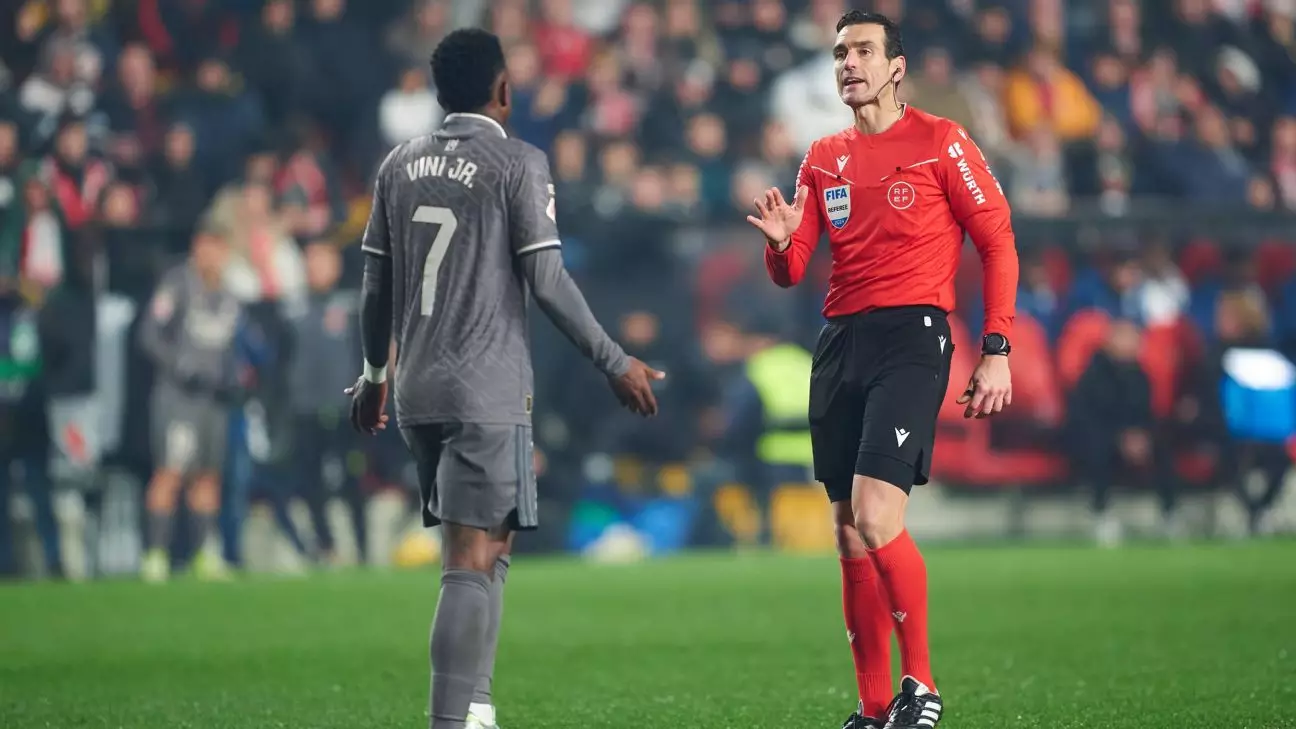Real Madrid’s recent encounter with Rayo Vallecano in LaLiga concluded with the teams sharing the spoils in a thrilling 3-3 draw. However, beneath the excitement of the match lay a storm of criticism aimed at the refereeing decisions, particularly the failure to award a penalty that many believe could have tipped the scales in favor of Madrid. This article scrutinizes not only the match events but also the broader implications these controversial moments have on the perception of officiating within LaLiga.
Match Dynamics: A Rollercoaster of Emotions
The match unfolded dramatically, with Real Madrid initially finding themselves two goals down, courtesy of early headers from Rayo’s Unai López and Abdul Mumin. Such a setback could have spelled disaster for many teams, but Madrid’s resilience shone through as they clawed their way back with goals from Federico Valverde and Jude Bellingham. Rodrygo’s strike to give Madrid a lead suggested they were in control, yet once again, Rayo’s Isi Palazón equalized, leaving the match tantalizingly poised at 3-3.
Despite the attacking prowess displayed by both teams, the game was marred by the contentious refereeing decisions, which overshadowed the sporting spectacle. Real Madrid’s official response was not merely an emotional outburst but a reflection of a season characterized by a perceived lack of consistency and fairness from officials.
The pivotal moment that drew ire from the Madrid camp occurred in the 75th minute when Vinícius Júnior was downed in the box by Mumin. Despite claims that the foul was clear, referee Juan Martínez Munuera opted against awarding a penalty. Such decisions not only jeopardize the outcome of the match but also chip away at the integrity of the league itself. Real Madrid’s subsequent statement, highlighting the “controversial refereeing”, underscored the frustrations felt throughout the club and its supporters.
Coach Carlo Ancelotti voiced similar sentiments in his post-match reflections, arguing that the penalty was evident upon review. His acknowledgment of Madrid’s improved form contrasted starkly with earlier draws that left him anxious. Moreover, Ancelotti’s strategies seemed to evolve in response to the burgeoning injury list that kept key players sidelined, showcasing his ability to adapt even in difficult circumstances.
The Impact of Injuries on Squad Depth
One of the most notable factors in the lead-up to the match was the absence of top performers, including Kylian Mbappé and Dani Carvajal, whose injuries forced Ancelotti to rethink his tactics. The decision to start Vinícius on the bench, given his recent injury woes, displayed prudence as he sought to shield the young star from the rigors of a full match. In the end, Vinícius provided the much-needed spark in the second half, cementing the importance of squad depth in navigating a demanding season.
This situation highlighted the challenges faced by clubs like Real Madrid, who are not only contending with opponents but also grappling with medical uncertainties. Ancelotti’s ability to field competitive teams amidst such adversity is commendable but raises questions about how much reliance can be placed on a limited squad rotation, particularly as injuries continue to accumulate over the season.
The conversation around officiating in LaLiga is not new, yet it has intensified recently as clubs vocalize their dissatisfaction with referee performances. Real Madrid’s continuous calling out of perceived errors signals a broader issue within the league, where consistency in important decisions remains a topic of heated debate. The use of video assistant referee (VAR) technology was expected to alleviate some of these problems, yet complaints continue about its application and the criteria used by referees in handing out decisive decisions.
Critics argue that if such officiating controversies persist, they may erode the credibility of LaLiga itself. For fans and players alike, the integrity of the sport hinges not only on the skills showcased on the pitch but also on the fairness of the officiating that governs it. As Real Madrid looks ahead to their next fixtures, including crucial matches like the FIFA Intercontinental Cup Final against Pachuca, the weight of collective responsibility now rests on both players and officials to ensure that the spirit of the game remains intact.
Real Madrid’s match against Rayo Vallecano was far more than just a clash of footballing skills. It illuminated pressing issues related to officiating in the league and showcased the challenges that arise when players are sidelined. As the season progresses, fans will undoubtedly keep an eye on how these dynamics evolve, hoping that the beautiful game continues to be governed by fairness and accuracy.

